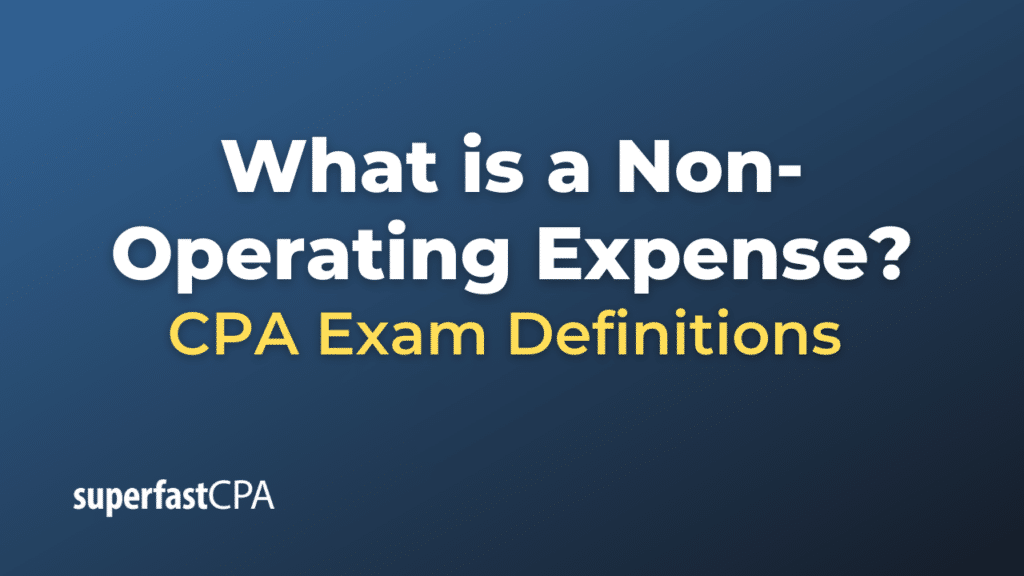Non-Operating Expense
A non-operating expense, also known as an extraordinary expense, refers to costs that are not directly related to a company’s core business operations. These expenses are usually not recurring and are not considered when calculating operating income or earnings before interest, tax, depreciation, and amortization (EBITDA).
Non-operating expenses can include:
- Interest Expense: This is the cost of interest payable on debt such as loans or bonds. Even though the debt might finance operations, the interest expense itself is considered a non-operating expense because it’s not directly related to the core business operations.
- Lawsuit Settlements: If a company has to pay out a significant sum of money due to a lawsuit, this is considered a non-operating expense because it’s not related to the company’s primary business activities.
- Losses from Sale of Assets: If a company sells an asset and incurs a loss, this is considered a non-operating expense because selling assets is not a part of the company’s regular operations.
- Impairments or write-downs: If a company must write down the value of an asset due to an impairment or lower market value, this is considered a non-operating expense.
- Restructuring Costs: If a company restructures its operations and incurs costs, such as severance pay or lease breakage fees, these are considered non-operating expenses.
Because non-operating expenses are not related to the core business activities, they are often excluded when analyzing a company’s operating performance. However, they are still important to consider when assessing a company’s overall financial health because they can have a significant impact on net income.
Example of a Non-Operating Expense
Let’s consider a hypothetical example of a tech company, TechMax, to explain non-operating expenses.
TechMax specializes in developing and selling software solutions. It has several operating expenses related to its core business operations such as the salaries of its software developers, the cost of research and development, sales and marketing expenses, and overhead costs like rent and utilities for its office space.
However, in one particular year, TechMax encountered some specific costs that were not directly tied to its core business operations:
- Interest Expense: TechMax had taken on a loan to expand its business operations into new markets. For the current fiscal year, the company had to pay $200,000 in interest on this loan. This interest expense is a non-operating expense because it’s not directly tied to the company’s core business of developing and selling software.
- Lawsuit Settlement: In the same year, TechMax had to pay $500,000 to settle a lawsuit related to a patent dispute with another tech company. This lawsuit settlement is also a non-operating expense because it’s not connected to the company’s regular operations.
- Loss from Sale of an Asset: TechMax sold one of its underutilized office buildings for $1 million, but the book value of the building on TechMax’s balance sheet was $1.2 million. This resulted in a loss of $200,000 on the sale of this asset, which is another non-operating expense.
- Restructuring Costs: TechMax decided to close one of its non-profitable divisions and had to pay $300,000 in severance pay to the affected employees. These restructuring costs are non-operating expenses because they’re related to an exceptional event and not to the company’s primary business operations.
All these costs – interest expense, lawsuit settlement, loss from the sale of an asset, and restructuring costs – are non-operating expenses. While they do impact the company’s net income, they’re not considered when evaluating TechMax’s operating performance as they don’t directly relate to the company’s main business activities. However, they are crucial for assessing the company’s overall financial health and its ability to manage extraordinary expenses and events.













